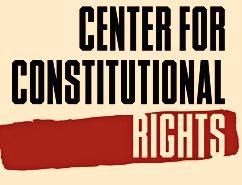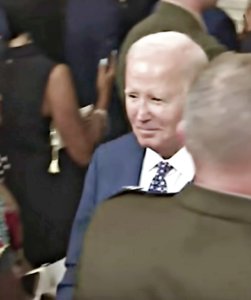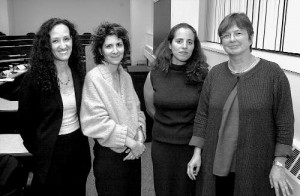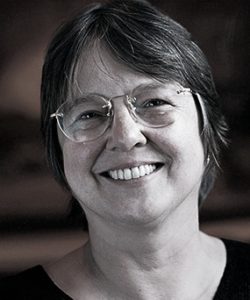Podcast: Play in new window | Download
CCR Files Suit: Palestine v Biden
Since the illegal October 7 attacks by Hamas that killed 1,200 people in Israel, the Israeli occupying forces have mounted a massive military assault on the Palestinian people. As of November 21, more than 14,128 Palestinians have been killed, including more than 5,600 children and over 3,550 women; at least 30,000 have been injured; and about 1.7 million out of 2.2 million people in Gaza have been displaced. Hundreds of thousands of people around the world have mounted mass protests against Israel’s war on the Palestinians in Gaza.
On November 13, the Center for Constitutional Rights (CCR) filed suit on behalf of Palestinians against President Joe Biden, Secretary of State Antony Blinken, and Secretary of Defense Lloyd Austin for failure to prevent genocide and complicity in genocide.
Guest – Maria LaHood is Deputy Legal Director at CCR, with expertise in constitutional rights and international human rights. Maria works closely with Palestine Legal to support students and others whose speech is being suppressed for their Palestine advocacy around the country. She graduated from the University of Michigan Law School and was named a 2010 Public Justice Trial Lawyer of the Year Finalist. Maria and other lawyers from CCR wrote the complaint filed in federal court.
—-
Remembering Professor Holly Maguigan
Holly Maguigan, noted professor and attorney who was a pioneer of the battered woman defense, has died. Holly was Professor of Clinical Law at the New York University School of Law, where she ran the Criminal Justice Clinic: Focus on Domestic Violence and Evidence. She practiced law in Philadelphia in the 1970s and ‘80s, both as a public defender and in private practice, specializing in the defense of victims of domestic violence who assaulted or killed their abusers and then faced criminal prosecution. Judges and juries were largely unsympathetic to women who stayed with their abusive partners even though many were emotionally and psychologically unable to leave those relationships. Traditional self-defense principles require that the abused person have a reasonable belief that she is about to suffer imminent death or great bodily injury. But some people kill their abusers preemptively, before the next attack can occur.
Sue Osthoff, a founder of the Philadelphia-based National Clearinghouse for the Defense of Battered Women, who worked with Holly for decades, said, “I do believe many, many victims of battering would not have done as well as they did” without Holly’s work. Many defendants were acquitted, and several others were not charged at all.
Holly once wrote that criminal defense attorneys must “explain the impact of intimate violence without appearing to pathologize battered women and deny their reason and capacity.” Holly was a member of the Family Violence Prevention Fund’s National Advisory Committee on Cultural Considerations in Domestic Violence cases and she was a co-president of the Society of American Law Teachers.
- I was doing medieval history and I was at Berkeley. It was 1967 and Oakland stopped the draft.
- I got very interested in the anti-war politics.
- I hated lawyers. I really hated lawyers. They were boring. They talked about themselves all the time. They only had stories about their cases and how great they were and they would never post bail when people got arrested.
- The University of Pennsylvania in Philadelphia is where I stayed for 17 years.
- First I started out as a public defender. I loved being a public defender, it was the beginning and end of everything I hoped it would be.
- That’s where I met David Rudovsky and David Kairys. They were then defenders while I was a student.
- After they went out on their own, they kept inviting me to join them. I kept putting it off because I loved being a defender so much.
- In Philadelphia there was much more actual litigation, not just motion litigation there’s a lot of that here in New York City but actual trials.
- You had a sense, there was an analysis that people were doing life on the installment plan and you needed to do what you could to kick them loose any particular time.
- It was a community in its own odd way and I found it difficult to leave it.
- I was doing major felonies within a couple of years.
- David Kairys was very focused on constitutional litigation and government misconduct. He did the Camden 28 which was a big draft resistance case.
- My interest was more into criminal defense.
- Grand juries (all over the country) convened to investigate the alleged transportation of Patty Hearst by the SLA from California where she had been captured.
- He was a killer. (Frank Rizzo) There was no question. More people died in police actions before or since.
- I don’t mean to suggest that all the police started out as homocidal. This was a situation which from the top down came the message if you’re a good cop then you’re going to take people out however you think you need to.
- I knew about race and class bias in the court room as much as a white woman who was middle class could know.
- I was just blown away by what happens when you add hatred of women to hatred of black people and hatred of poor people.
- Judges would go by me in the hall and say Maguigan, ahem, you didn’t give me anything this Christmas, not even one lousy bottle, you’re not getting any assignments.
- Judges would do things, like open the drawer in their chambers, and there would be wads of bills, and they’d let you know.
- I developed a specialty on women who kill men.
- In the early eighties a group in Philadelphia called Women Against Abuse began working and they did advocacy for battered women accused of crime and meant a huge difference.
- The battered women cases I was working on were quite consuming because people then didn’t know very much in how to try these cases.
- The judges expected you to plead insanity or guilty. Reasonable doubt was a consideration at sentencing not at trial.
- There were cases that did require teams. There was no question.
- I wanted to be in court. I wanted to be in the presence of that conflict between the authorities and regular people.
- I went to NYU where I taught in the criminal defense clinic for many years.
- To see students react to the great stories their clients have is just amazing.
- SALT (Society of American Law Teachers) is about who gets into law school, what they learn and who teaches them. It’s about access to justice. It’s about relating to law school as a place where you train people to do social justice. SALT’s focus is on students and teaching.
- Holly Maguigan to be honored by Society of American Law Teachers.
Guest – Professor Holly Maguigan teaches a criminal defense clinic and one in comparative criminal justice as well as a seminar in global public service lawyering and a course in evidence. She is an expert on the criminal trials of battered women. Her research and teaching are interdisciplinary. Of particular importance in her litigation and scholarship are the obstacles to fair trials experienced by people accused of crimes who are not part of the dominant culture. Professor Maguigan is a member of the Family Violence Prevention Fund’s National Advisory Committee on Cultural Considerations in Domestic Violence cases. She serves on the boards of directors of the National Clearinghouse for the Defense of Battered Women and the William Moses Kunstler Fund for Racial Justice. She is a past co-president of the Society of American Law Teachers, the largest membership organization of law professors in the U.S.
Hosted by attorneys Michael Ratner, Michael Smith, Heidi Boghosian and Marjorie Cohn
————————————————




